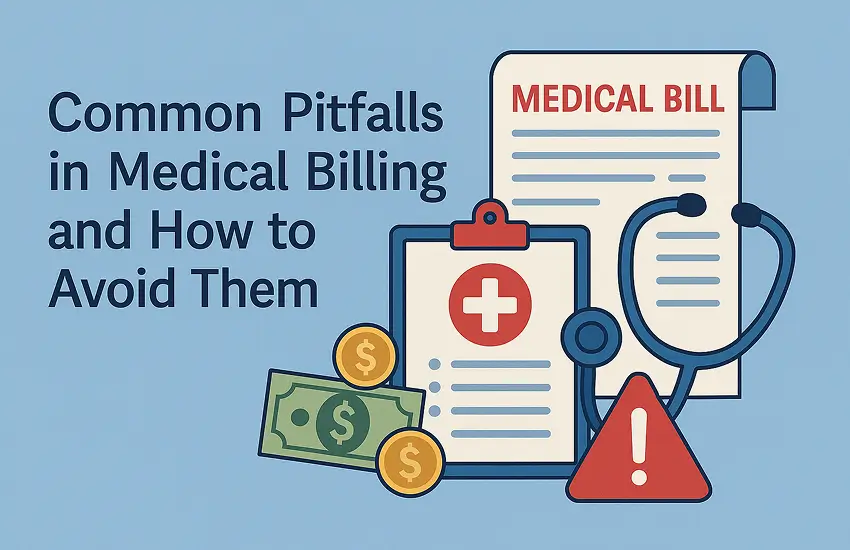
May 31,2025
Medical billing is a critical function in the healthcare ecosystem. Yet, even minor mistakes can lead to claim denials, delayed payments, or compliance risks. Whether you're running a small clinic or managing a multi-specialty practice, understanding the common pitfalls in medical billing is key to improving your revenue cycle and ensuring patient satisfaction.
In this article, we'll highlight the most frequent errors in medical billing and how your practice can proactively prevent them.
One of the most common and easily avoidable billing mistakes is inaccurate patient data. Incorrect names, insurance details, or policy numbers can cause immediate rejections.
How to Avoid It:
Medical billing coding errors—like using outdated CPT or ICD-10 codes—can lead to claim denials or underpayments. With codes regularly updated, it's essential to stay current.
How to Avoid It:
Insufficient documentation to support a claim is a red flag for insurers. It can lead to denials and even audits.
How to Avoid It:
Failing to record all services provided during a patient visit means lost revenue.
How to Avoid It:
Many insurance providers have strict deadlines. Submitting claims late means automatic denial.
How to Avoid It:
Assuming coverage without verification is risky. Patients may not be eligible, or policies might have changed.
How to Avoid It:
If you're not analyzing patterns in claim denials, you’re missing a major opportunity for improvement.
How to Avoid It:
Companies like NextRCM offer end-to-end medical billing and revenue cycle management services tailored to your needs. With experience in handling physical therapy billing, compliance issues, and revenue recovery, outsourcing to a professional team ensures fewer errors and faster collections.
Learn more about our medical billing services and how we help providers avoid these costly mistakes.
Q1: What are the most common medical billing errors?
A: The most common errors include incorrect patient info, outdated codes, missing documentation, and late claim submissions.
Q2: Can outsourcing medical billing really reduce errors?
A: Yes, professional RCM firms like NextRCM have trained coders and systems that greatly reduce human errors and increase efficiency.
Q3: How often should we audit our medical billing process?
A: Ideally, audits should be conducted quarterly. However, monthly denial trend reviews are also recommended.
Q4: Is real-time eligibility verification necessary?
A: Absolutely. It helps avoid denials and ensures patients get the services they are actually covered for.
Q5: What makes NextRCM different from other medical billing companies?
A: NextRCM focuses on transparency, real-time analytics, and custom workflows designed to maximize your billing revenue while minimizing denials.
Avoiding common billing mistakes isn’t just about protecting revenue—it’s about delivering better healthcare. By investing in better tools, staff training, and expert RCM services, your practice can stay compliant, get paid faster, and build long-term trust with patients.
Ready to improve your billing process? Contact NextRCM today.
URL: https://nextrcm.com/medical_billing

May 31,2025
Medical billing is a critical function in the healthcare ecosystem. Yet, even minor mistakes can lead to claim denials, delayed payments ...